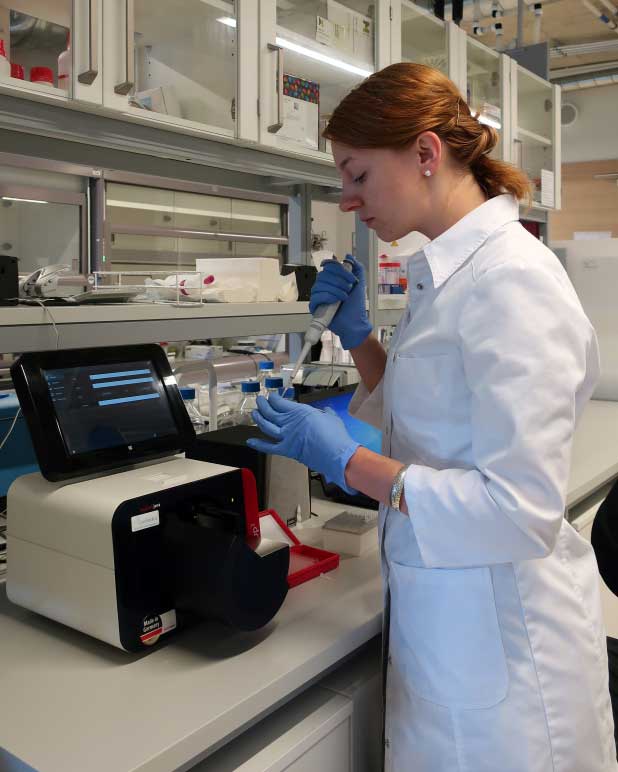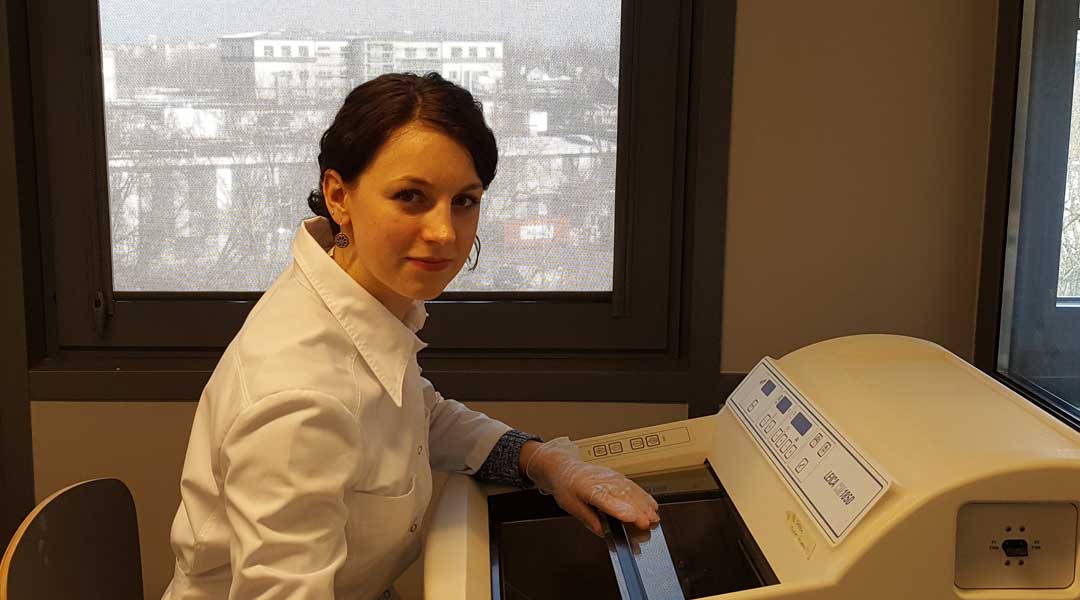
Karīna Narbute, Ph.D., 2020 STEM CELLS Translational Medicine Young Investigator
Durham, NC – Karīna Narbute, Ph.D. is the latest recipient of STEM CELLS Translational Medicine’s Young Investigator Award. The award fosters advancements in the field of stem cells and regenerative medicine by honoring a young researcher who is the principal author of an article published in SCTM that, over the course of a year, is deemed to have the most impact.
Dr. Narbute, a research assistant in Prof. Kluša’s lab in the Department of Pharmacology at the University of Latvia in Riga, was awarded the prize for her work demonstrating, for the first time, the therapeutic efficacy of extracellular vesicles derived from stem cells harvested from dental pulp in pre-clinical Parkinson’s disease model animals.
In her winning paper, “Intranasal Administration of Extracellular Vesicles Derived from Human Teeth Stem Cells Improves Motor Symptoms and Normalizes Tyrosine Hydroxylase Expression in the Substantia Nigra and Striatum of the 6‐Hydroxydopamine‐Treated Rats,” Dr. Narbute and her team examined therapeutic effects of intranasal administration of EVs derived from human exfoliated deciduous teeth stem cells (SHEDs) on unilateral 6‐hydroxydopamine (6‐OHDA) medial forebrain bundle (MFB) rat model of PD. Their proof of concept study demonstrates that EVs could be potentially exploited for the development of novel and minimally invasive therapies that delay progression of the disease and mitigate disability in PD patients.
“More than 10 million people worldwide are living with Parkinson’s Disease, and, while there are therapies to help treat the symptoms, this proof-of-concept study shows the therapeutic potential of extracellular vesicles derived from stem cells to potentially delay disease progression,” said Anthony Atala, M.D., Editor-in-Chief of STEM CELLS Translational Medicine and director of the Wake Forest Institute for Regenerative Medicine.
Dr. Narbute hopes her findings can one day be used to develop new treatment strategies not only for Parkinson’s, but for other devastating neurogenerative diseases, too.
“Even though we have shown that EVs possess therapeutic properties to reverse neurodegeneration, we still have a lot of work ahead of us, e.g., to determine the exact molecular mechanisms that underlie the beneficial effects of EVs,” said Dr. Narbute.
Learn more about Dr. Narbute’s work on treatment options for spinal cord injuries.

